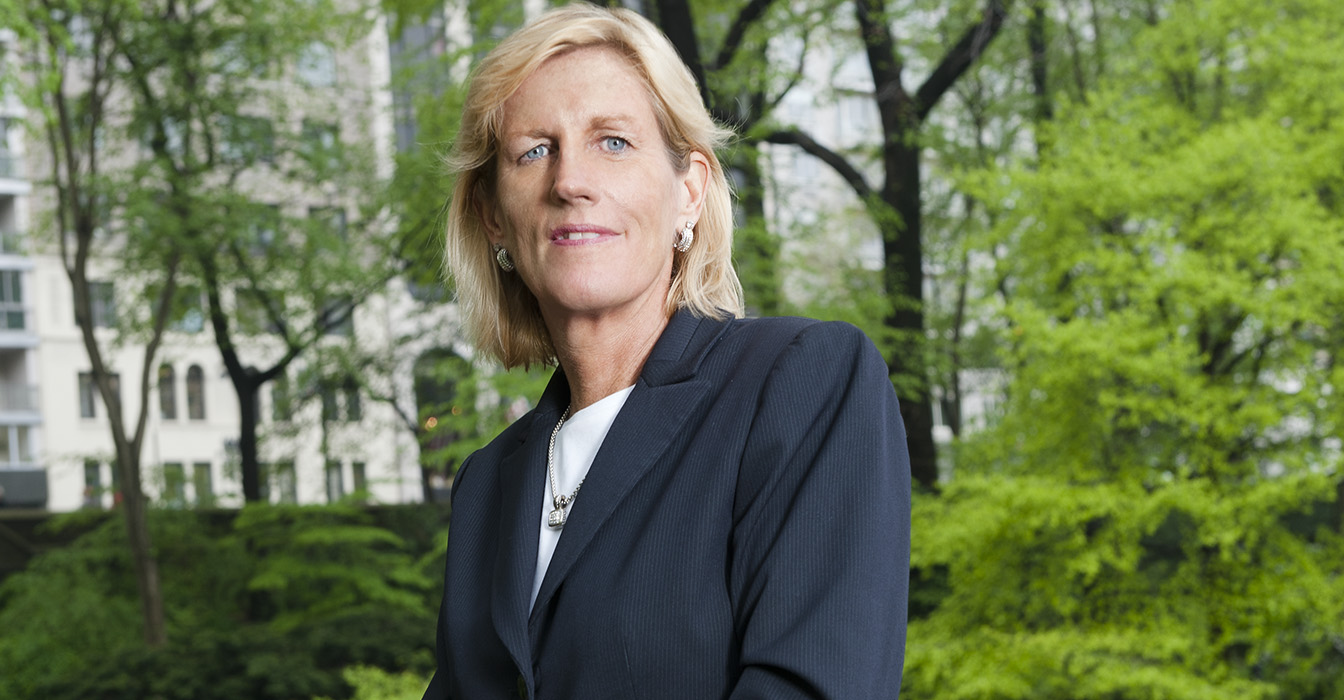If you run a big corporation that is a frequent target of massive product liability lawsuits, you want Diane Sullivan on your speed dial. The Weil Gotshal & Manges litigation partner has gone to bat in court for some of the biggest targets of product liability suits – tobacco companies and Big Pharma – and produced a batting average in jury trials in the Hall of Fame category.
In 2011, after more than three months of trial, a jury handed Philip Morris a complete defense verdict in a lawsuit brought by the City of St. Louis and a group of hospitals seeking $455 million plus punitive damages for treating tobacco-related illnesses.
At trial she famously told the jury during closing arguments that “cigarettes are dangerous and they're addictive, and a lot of people, a lot of people have suffered because of their choice to smoke." But hospitals, she said, didn’t lose money as a result of people smoking. Quite the contrary. “[H]ospitals, they make money on our bad habits," she argued.
Sullivan, a 1987 graduate of the University of Pennsylvania Law School, was instrumental in helping AstraZeneca fend off thousands of personal-injury suits in 2010 involving the company’s blockbuster antipsychotic drug Seroquel. With her move to Weil from Dechert in February 2012, Sullivan gained more breadth in her litigation that remains as high stakes as it comes. Earlier this year, she secured a significant defense verdict on behalf of ESPN involving more than $150 million in claims brought by Dish Network.
Lawdragon: You’ve represented pharmaceutical companies, tobacco companies and more recently cable sports network ESPN in various matters, from patent infringement, breach of contract claims to consumer fraud claims. How did you establish a reputation as the go-to-trial-lawyer for these disparate industries across various practice areas?
Diane Sullivan: Trial work is the art of effective communication, including effective storytelling. The ability to successfully communicate with juries and distill complex issues into a simple, believable narrative through openings and closings and witness examinations is a skill set that translates across industries and types of cases. The more complex the case, the greater the need to use simple words, themes and effective and entertaining graphics to communicate your story in an easy-to-understand fashion.
LD: You’ve done multiple trials in your 26-year career. Do you still remember your first trial? Any memorable war story you can share?
DPS: Yes – the first one was with an old-time, well-regarded New Jersey trial lawyer, Al Besser. He worked through lunch during trial, so I remember being a young associate and starving at lunch time, and Al being kind enough to split his apple – his lunch – with me. It taught me winning the case was about hard work even at the expense of food!
LD: There has been a lot of news lately about women leaders and how to succeed in the boardroom, mostly sparked by Sheryl Sandberg’s book “Lean In: Women, Work and the Will to Lead.” Have you had a chance to read the book or read the stories about it? Any reaction?
DPS: I have read it and recognized many of the situations Sheryl writes about. It has been provocative and has spawned a lot of conversation and analysis about things women may do to improve their chances for success – which is a good thing.
LD: Do you have your own success mantra for women trying to make it in the legal profession?
DPS: Take risks. Go for it.
LD: Have you ever hit a glass ceiling in your line of work, or anywhere else for that matter? If so, how did you manage to break through?
DPS: Trial work, particularly in the commercial litigation space, is a male-dominated field. Many women trial lawyers of my generation or older were relegated to the mass tort/product liability arena where there were clear benefits to being female when companies often faced sympathetic plaintiffs and or women’s health products were at issue. There was a sense that there was no real need for women in big time commercial cases or that the gals were not smart enough for that work. That’s changing and I’ve enjoyed crossing over to the big case commercial litigation trials. I look forward to seeing more women as lead trial lawyers in that arena.
LD: Let’s talk law school: Did you have a favorite law professor or course?
DPS: Civil Procedure at Penn was both terrifying and fascinating. Steven Burbank, a well-known expert in the area and professor taught the course at the University of Pennsylvania law school and was a big believer in the Socratic method!
LD: Best advice you’ve ever received from a fellow trial lawyer?
DPS: Trial work is theater; it’s a show to be choreographed into an effective story.
LD: Who is Diane Sullivan outside of law?
DPS: I love the Jersey Shore and Bruce Springsteen and being there with family and friends. We took a beating from Sandy, but we’ll be back Jersey Strong!


